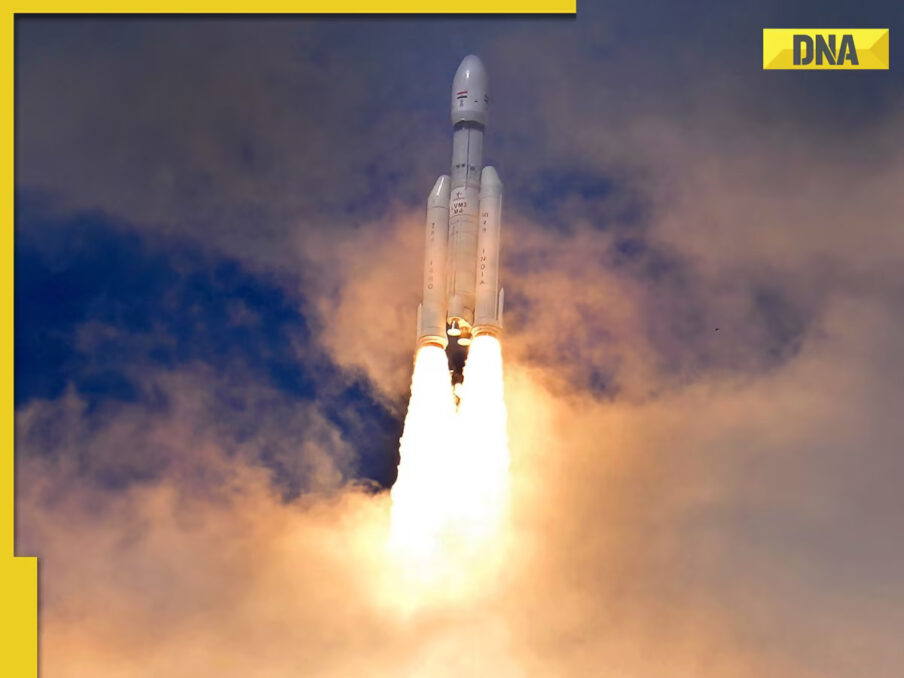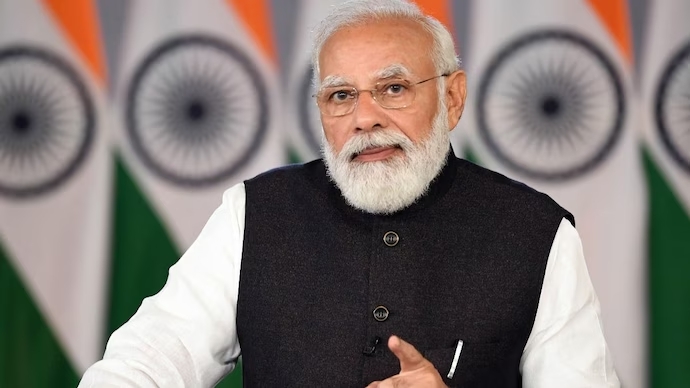In a virtual address during the 8th edition of the Rashtriya Rozgar Mela, Prime Minister Narendra Modi projected a promising future for India’s economy, particularly highlighting the tourism sector’s potential to contribute over Rs 20 lakh crore by 2030. The event, held across 45 locations in the country, witnessed the distribution of more than 51,000 appointment letters to newly inducted recruits in various paramilitary forces and also refers to them as Amrit Rakshak. The Prime Minister addressed the audience through video conferencing, underlining the importance of diverse sectors for India’s economic growth.
The Rashtriya Rozgar Mela, an initiative aimed at promoting employment opportunities across the nation, took center stage as Prime Minister Modi handed out appointment letters to the newly recruited paramilitary personnel. The event, organized by the Ministry of Home Affairs, has gained significant traction due to its role in driving job creation and empowering the youth. Under the Rozgar Mela scheme, the Ministry of Home Affairs is recruiting personnel in various central armed police forces (CAPFs), including the Central Reserve Police Force (CRPF), Border Security Force (BSF), Shashtra Seema Bal (SSB), Assam Rifles, Central Industrial Security Force (CISF), Indo Tibetan Border Police (ITBP) and Narcotics control Bureau (NCB), as well as Delhi Police, the prime minister’s office said in a statement.
Building a Strong Economy Through Tourism and Job Creation
Prime Minister Modi, while addressing the attendees, emphasized the tourism sector’s role in driving economic growth. He confidently projected that the tourism industry could contribute more than Rs 20 lakh crore to the Indian economy by the year 2030. This optimistic projection underscores the government’s focus on promoting tourism as a key revenue-generating sector. Speaking about the Rashtriya Rozgar Mela, which witnessed the distribution of 51,000 appointment letters, PM Modi stressed the importance of creating new avenues for the youth. He highlighted how the recruitment process for paramilitary forces has been streamlined, reducing the time required for recruitment. This not only provides immediate employment opportunities but also supports the government’s commitment to facilitating skill development.
In his address, Prime Minister Modi outlined the interconnectedness of various sectors in propelling India’s economy forward. From essential sectors like food and pharmaceuticals to cutting-edge industries like space and startups, he emphasized the need for comprehensive growth. PM Modi’s call for sectors to prosper collectively underscores the government’s approach to holistic economic development.
Underlining the achievements of India’s space program, the Prime Minister mentioned Chandrayaan-3 and its rover Pragyan, which have been sending historic images from the Moon. This achievement not only showcases India’s technological prowess but also serves as a testament to the nation’s determination to excel in various domains.
Furthermore, PM Modi encouraged the new recruits to focus on physical fitness and health maintenance throughout their service. He highlighted the importance of skill development and urged them to enroll in courses that would enhance their capabilities, emphasizing that the skills acquired would contribute to their success as officers.
Striving for Growth and Self-Sufficiency

PM Modi’s vision for India’s economic evolution hinges on self-reliance and growth across multifarious sectors. He spotlighted the government’s initiatives to champion “Made-in-India” products, particularly in the technology sector. This emphasis aligns harmoniously with the ‘vocal for local’ campaign, aimed at elevating manufacturing and engendering fresh employment avenues. Moreover, Prime Minister Modi exuded confidence in India’s economic trajectory, projecting the nation’s ascent to become one of the world’s top three economies within the next decade.
As Prime Minister Narendra Modi unveiled the Rozgar Mela, an event distributing appointment letters to 75,000 individuals, the Opposition seized the opportunity to levy allegations against the government. Accusing the government of resorting to “eventbaazi” and a mere “publicity stunt,” the Opposition contended that the event was orchestrated to veil the administration’s failure in job creation. Notably, the BJP’s pledge of generating two crore jobs annually was scrutinized, with the Congress demanding transparency on when the promised 16 crore jobs would be offered to the youth.
AICC General Secretary Randeep Surjewala emphasized that the Bharatiya Janata Party’s (BJP) recent recruitment drive, sparked by the Bharat Jodo Yatra, underscored the administration’s recognition of the mounting issue of unemployment.
Moreover, Surjewala emphasized that the nation’s youth yearn for genuine employment opportunities rather than elaborate spectacles. He urged Prime Minister Modi to clarify when the projected 16 crore jobs would be actualized, especially considering the previous commitment of generating two crore jobs annually over the last eight years. Additionally, the Opposition sought answers about the timeline for filling the existing 30 lakh vacancies within government departments.
Surjewala conveyed that the mere issuance of 70,000 appointment letters falls short of addressing the broader issue at hand. The Opposition asserted that the country’s youth demand concrete employment prospects, making it imperative for the Prime Minister to provide substantive responses. Rahul Gandhi and the Congress party committed to consistently posing these inquiries to the Prime Minister throughout the course of the Bharat Jodo Yatra.
The Trinamool Congress, another opposition entity, echoed similar sentiments. Derek O’Brien, leader of the TMC in the Rajya Sabha, branded Prime Minister Modi as the “Jumla Raja,” accusing him of reneging on his promise to deliver 16 crore jobs to the nation’s youth. O’Brien cited data presented by the Modi government in Parliament, indicating that a staggering 22crore individuals had applied for government jobs since 2014. However, only a mere seven lakh individuals managed to secure employment.
As the nation watches closely, the Rozgar Mela becomes a pivotal juncture in India’s journey towards employment generation and economic progress.













